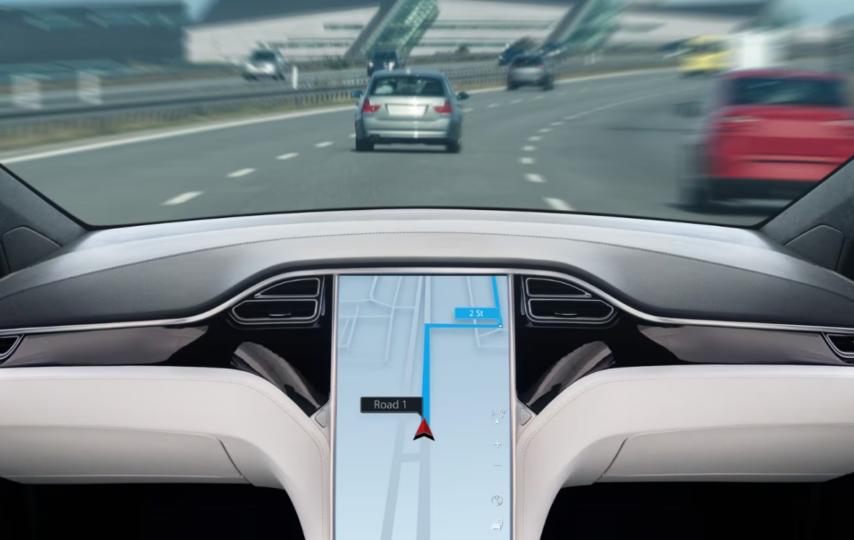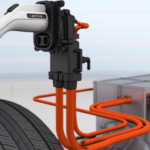Automobile sector is one of the pioneers in innovations as it always tries to invent new ideas and modes of travelling. It should be noted that one of the greatest inventions lately is the creation of self-driving cars.
These auto-driven cars inspire motorists and computer wizards alike with their potential future for safer roads, improved driving economy, and a complete car revolution. But amidst all this excitement, one question looms large: Is the world ready for self-driving cars?
The Current State of Self-Driving Technology
Firstly, let us examine how far advanced this new technology really is in our societies before discussing whether society is ready for such innovations. These self-driven cars are comprised of complex combinations of sensors, cameras, radars, and sophisticated AI algorithms to operate on highways without relying on a driver.
Autonomous driving systems are still being explored with great effort by some companies like Tesla, Waymo (subsidiary of Alphabet Inc.) and Uber.
Advancements in Safety
A key point that supports these vehicles is their ability to improve road safety greatly. Annually, a considerable number of road incidents is linked to errors on the part of people such as distracted and drunk driving.
This has brought about an argument that autonomous cars may do away with all those mentioned risks because they can make a decision within seconds upon receiving real time data analyses. Additionally, autonomous cars will be able to make communication among themselves without difficulties and thus decrease possibility of collisions on a greater scale.
Environmental Impact
The impact of self-driven cars on the environment is another essential factor which makes them attractive. Electrical powered automated cars have a huge potential of reducing the emission of green house gases in comparison with traditional conventional gasoline driven automobiles.
Also, autonomous car features offer opportunities for optimal route optimisation as well as effective traffic management mechanisms that lead to reduction in congestion and fuel consumption. This could go a long way in influencing air quality and ultimately the sustainability of the environment.
Public Perception and Trust
Self-driving cars clearly have many merits however people’s attitude and acceptance would be critical for mass usage of this invention. Many would find this idea that we are entrusting our lives in the hands of the machine disturbing.
Safety Concerns
The safety issue remains very much on people’s minds when considering self-driving cars. The skeptics believe that it will be foolish to bank on artificially intelligent systems to call the shot within seconds under complicated highway scenarios. Another challenge that needs to be overcome is the fear of accidents due to technology breakdown or hacking.
Ethical Dilemmas
There are some ethic issues associated with self-driving automobiles which require thought. What are the guidelines in cases of unavoidable accidents when it comes to protecting passengers versus pedestrians and other cars? The settling of these moral concerns entails lengthy argumentation and agreement among decision makers, producers, and the society at large.
Cultural Shift
Such a move from using human driven cars to autonomous ones involves a great cultural shift. For many people driving is a joy that makes them happy, they just love controlling the steering wheel. This idea of giving up such control is difficult for many people when it comes to acceptance and use of the self-driving cars.
Infrastructure and Legal Frameworks
There will be a need to make major improvements on both the infrastructure and the laws before one can use self-driving cars as an integral part of their lives.
Infrastructure Upgrades
Autonomous cars’ efficiency is questionable regarding existing road infrastructure. For the full realization of the potential of autonomous vehicles, roads will need sophisticated additions such as intelligent car-road signals; vehicle-to-infrastructure communication; roadway mapping precision for exact car locationing.
Regulatory Frameworks
Comprehensive regulations are important in building policies that can guarantee a safer deployment of autonomous vehicles. Governments should set standards on law, data protection, cyber safety, ethics and algorithm.
It is similarly important that these regulations are harmonized by countries within a global setting, especially when they come to border crossing operations of automated cars.
Economic Implications
It is more than certain that the emergence of autonomous vehicles in most parts of the world would exert pressure on both local and international economies. In fact, conventional car makers will feel the heat coming from tech firms venturing into autonomous cars, transforming the automotive industry as we know it today.
Job Displacement
If autonomous cars were accepted globally, millions of professional drivers across the world would be rendered redundant, including taxi and truck drivers. With the development of self-driving technology, it is crucial that solutions are found for retraining and providing new sources of income for the concerned parties.
New Business Models
Autonomous vehicles create fresh avenues for revenue generation. Complete automation would lead to cheaper hitch services increasing the availability of these cars for public use. Autonomous vehicles will also be beneficial for delivery services hence better logistics and improved speeds of deliveries.
Conclusion
The world stands at the precipice of a transportation revolution with self-driving cars poised to reshape our roads and cities. While there are numerous benefits associated with this technology, challenges remain in terms of safety, public perception, infrastructure upgrades, regulatory frameworks, and economic implications.
As we navigate these challenges collectively, it is essential to strike a balance between embracing innovation and ensuring that the integration of self-driving cars prioritizes safety, sustainability, and inclusivity. Only then can we confidently say that the world is ready for self-driving cars.
Do not forget to check Dyler to explore a wide variety of used and new cars on the market available for purchase. You might just find the perfect car for you – whether it be traditional, electric, or autonomous. Happy driving!







